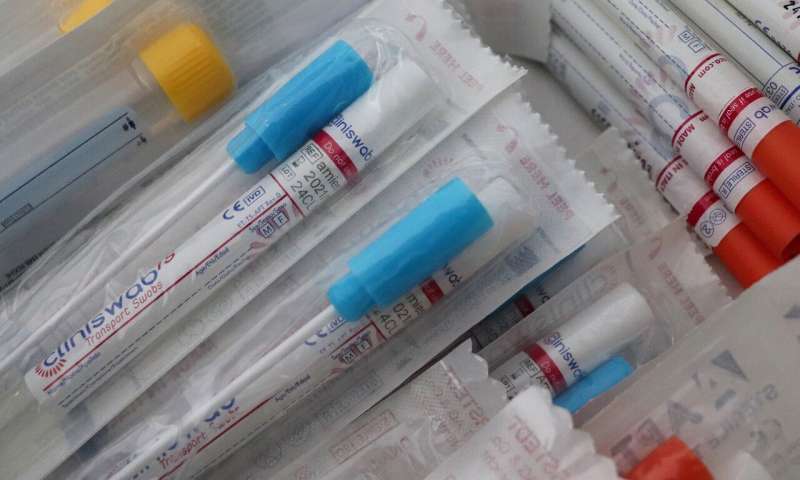Credit: Pixabay/CC0 Public Domain
Where and how long can schools remain open in times of the coronavirus pandemic? How safe are public transport means? Which rules must be observed when organizing events? To answer these questions, systematic tests for coronavirus infections and antibodies are of decisive importance. However, these are often not mandatory, and the associated expenditure may be high. Whoever undergoes testing contributes to a better understanding of the situation. But is this motivation enough? Researchers of Karlsruhe Institute of Technology (KIT) and University of California San Diego (UCSD) found that the costs of tests play an important role. Political decision-makers should therefore consider making these tests easily accessible.
In an anonymous study, Nora Szech, Professor of Political Economy of Institute for Economic Policy Research (ECON) of KIT, and Marta Serra-Garcia from Rady School of Management of University of California San Diego, studied the willingness to undergo testing for coronavirus antibodies of about 2,000 U.S. citizens. When costs were close to zero, 80% of the participants were ready to undergo testing. With increasing costs, the demand for tests decreased considerably. At a price of $20, the willingness to undergo testing was halved. "I am not surprised to find that not everybody was willing to undergo testing," Nora Szech says. "Compared to tests for Huntington's or HIV, the interest in coronavirus tests is high, but this changes drastically with increasing costs."
Price, income, age and ethnicity are decisive factors
The researchers found that additional factors also affect the willingness to undergo testing. "Among these factors are the age, the suspected length and strength of immunity due to antibodies, and the uncertainty as to whether people had already been infected by the virus," Marta Serra-Garcia says. The preparedness to pay for antibody tests also is dependent on the income, ethnic origin, and political preferences. The study revealed that supporters of U.S. President Donald Trump were less prepared to pay for a test. This suggests that the results of COVID-19 tests of volunteers may probably not be representative of the entire population.
"To find out how far the virus has spread in reality and how many people are immune, we need a high acceptance of the tests. To learn more about immunity at schools, for instance, we are dependent on teachers and pupils who undergo testing," Szech says. "Here, easy access is the key. If this cannot be ensured, we should consider to compensate people for their time and effort to undergo testing." The same holds for tests for active infections: "Even if they do not have any symptoms, teachers, for instance, are requested to undergo regular testing. At the moment, however, these tests are associated with a high expenditure for them."
"Our interviews also revealed that higher income groups have an increased willingness to undergo testing, while lower income groups that often have a higher risk of infection when rendering system-relevant services will less probably accept testing," Serra-Garcia explains. "Moreover, black respondents are less prepared to undergo testing, although recent research shows that black communities were severely affected by the virus."
According to the scientists, systematic tests are required to obtain a better understanding of the local situation. "Ideally, tests should be easily and regularly accessible, in particular for high-risk groups as well as for schools and daycare facilities. This will be worthwhile for us all," Szech says.
More information: Marta Serra-Garcia et al. Understanding Demand for COVID-19 Antibody Testing, SSRN Electronic Journal (2020). DOI: 10.2139/ssrn.3607484
Provided by Karlsruhe Institute of Technology
























